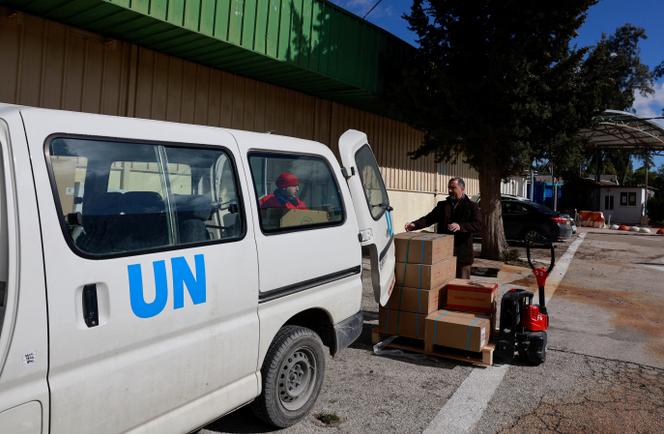


On Tuesday, January 30, United Nations Secretary-General Antonio Guterres convened a meeting of the main donors of UNRWA, the UN agency in charge of Palestinian refugees, which is going through the worst political and financial crisis in its history.
Seventeen of its donors – including some of the largest, such as the USA, Japan and Germany – have cut their funding since the announcement, on Friday, that the agency had dismissed several of its employees, who Israel has alleged were involved in the attack carried out by Hamas on October 7. According to Guterres, 12 employees were accused, one of whom is dead.
An internal investigation has been launched and its results are awaited by certain donors before deciding whether or not to continue their aid. This represents a race against time for the agency, whose operations risk being interrupted for lack of funds as of the end of February. According to UNRWA, $500 million (around €460 million) have been frozen to date, including for emergency needs in Gaza, where the agency is the main provider of aid to civilians under Israeli bombardment. The agency has some 30,000 employees in the Middle East, including 13,000 in Gaza.
The United States, the United Kingdom and European countries are among UNRWA's traditional donors historically. Washington is the largest donor ($343 million in 2022), followed by Germany and the European Union ($114 dollars in 2022). Well behind, China pledged $1 million in 2022, while Russia pledged $2 million. UNRWA's mandate, renewed every three years by the UN General Assembly, was extended in 2022.
Seventeen donors have frozen their funding. In order of importance according to 2022 contributions: USA, Germany, Sweden, Japan, Canada, Netherlands, UK, Italy, Australia, Austria, Finland, New Zealand, Iceland, Romania, and three small contributors: Estonia, Lithuania, Latvia. While concerned about the "very serious allegations" made against the 12 UN employees implicated, Norway, the fifth largest donor, refused to "collectively punish" UNRWA and the beneficiaries, and maintained its funding.
Voluntary international contributions from governments and multilateral organizations, such as the European Union, account for almost 90% of UNRWA's funding. The salaries of the international staff (120 positions) are paid by the UN General Secretariat. Donations can be allocated to three different funds. The general budget finances the agency's traditional missions: education, health and assistance to the poorest in refugee camps in the Occupied Palestinian Territories, as well as in Lebanon, Syria and Jordan.
You have 60% of this article left to read. The rest is for subscribers only.
